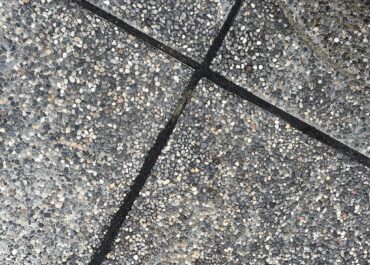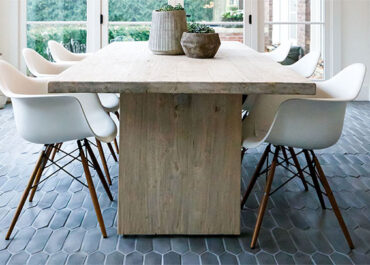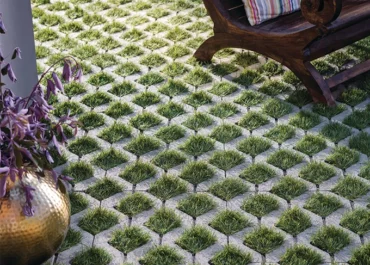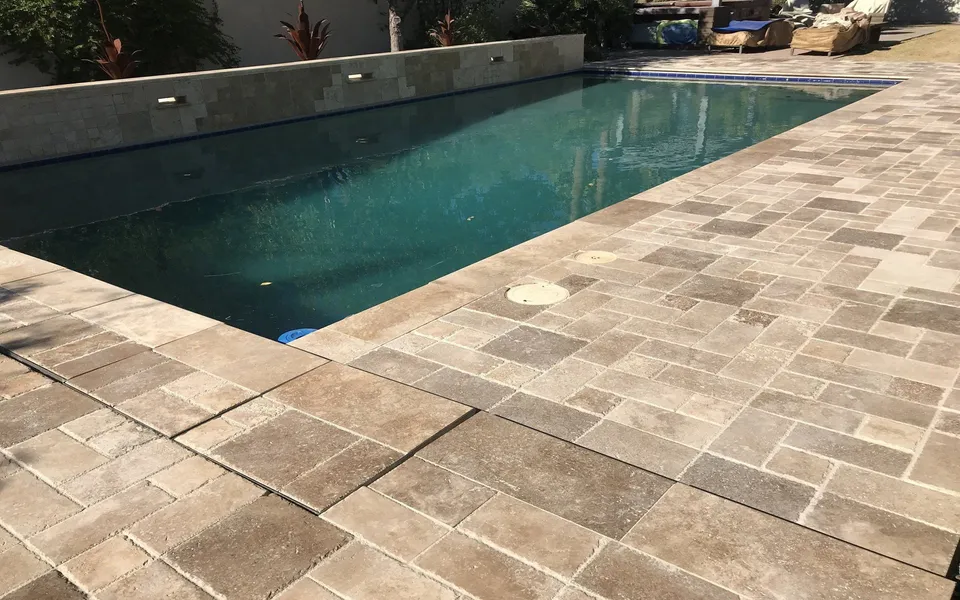
Travertine pavers, with their timeless beauty and natural elegance, have become a staple in modern hardscape design. These luxurious stone materials are prized for their durability, versatility, and ability to transform outdoor spaces into captivating oases. However, learning how to clean travertine pavers is pivotal to preserving their splendor over time – and fortunately, proper cleaning and maintenance are very straightforward.
In today’s guide, we’ll delve into effective methods to save dirty travertine pavers, discuss the recommended cleaning frequency, and explore the question of whether they need to be sealed or not.
To read our complete guide on pavers restoration, click here.
How to Clean Travertine Pavers in 5 Popular Methods
Whether used for patios, pathways, or pool surrounds, travertine pavers effortlessly blend aesthetic appeal with functionality. That said, like any kind of flooring, they are prone to getting dirty, especially when installed in high-traffic areas such as poolsides and driveways. Therefore, to prevent bigger damage to their surface, they must get cleaned at least once a week.
Below, we’ve provided you with a list of the most known methods to complete this job, depending on the level of dirt your pavers find themselves in.
Sweeping and Dusting
Regular sweeping with a soft-bristle broom or using a leaf blower helps prevent dirt, debris, and leaves from settling on the pavers. This simple practice minimizes the risk of scratches and stains caused by abrasive particles.
Gentle Washing
You may begin by rinsing the pavers with a garden hose to remove loose dirt. Then, create a mixture of mild dish soap and water. Gently scrub the pavers with a soft-bristle brush or mop, focusing on stained or soiled areas. Rinse thoroughly with clean water and allow the pavers to air dry.
Pressure Washing
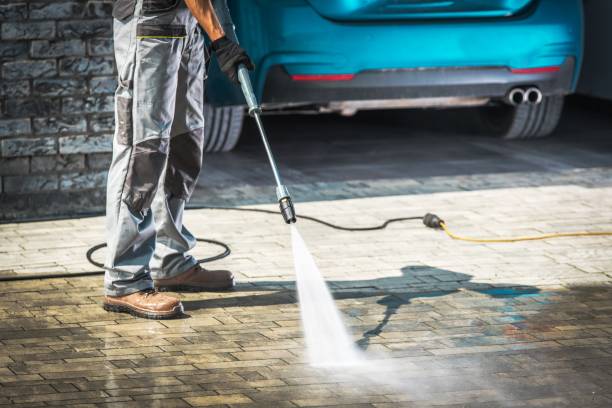
Use a pressure washer on the lowest setting (around 1,200-1,500 psi) to clean larger outdoor spaces. Maintain a safe distance from the pavers to prevent damage. Exercise caution when using this method, as excessive pressure can erode the surface or force water into the pavers, leading to cracks.
Vinegar Solution
Of course – for stubborn stains like algae or mildew, stronger alternatives will be necessary. First, create a solution of equal parts water and white vinegar (any other type will damage your pavers) and apply the solution to the affected areas, letting it sit for a few minutes before gently scrubbing with a brush. Then, rinse thoroughly with water to remove any vinegar residue.
Commercial Cleaners
Finally, there are various commercial cleaners specifically formulated for natural stone surfaces. Always follow the manufacturer’s instructions and test a small, inconspicuous area before applying it to the entire surface. Some of the solutions we recommend are:
- StoneTech Professional Stone & Tile Cleaner: This cleaner is formulated to effectively remove dirt, grime, and stains from natural stone surfaces, including travertine pavers. It is pH-balanced and designed to clean without damaging or dulling the stone’s finish.
- Black Diamond Stoneworks Limestone and Travertine Floor Cleaner: This cleaner is specifically designed for limestone and travertine surfaces, making it suitable for travertine pavers. It is safe and effective for regular cleaning and helps to maintain the natural beauty of the stone.
- MB Stone Care MB-1 Tile and Stone Cleaner: This cleaner is known for its ability to break down and lift away tough stains, soap scum, and mineral deposits from various stone surfaces, including travertine. It is a versatile cleaner suitable for both indoor and outdoor use.
How Often Should You Clean Your Pavers?
The frequency of cleaning your travertine pavers largely depends on their exposure to environmental factors and foot traffic. Generally, a routine cleaning every two to three weeks is recommended to prevent dirt buildup and maintain their lustrous appearance. However, high-traffic areas or spaces near trees may require more frequent cleaning. Regular maintenance will not only keep your pavers looking pristine but also extend their lifespan.
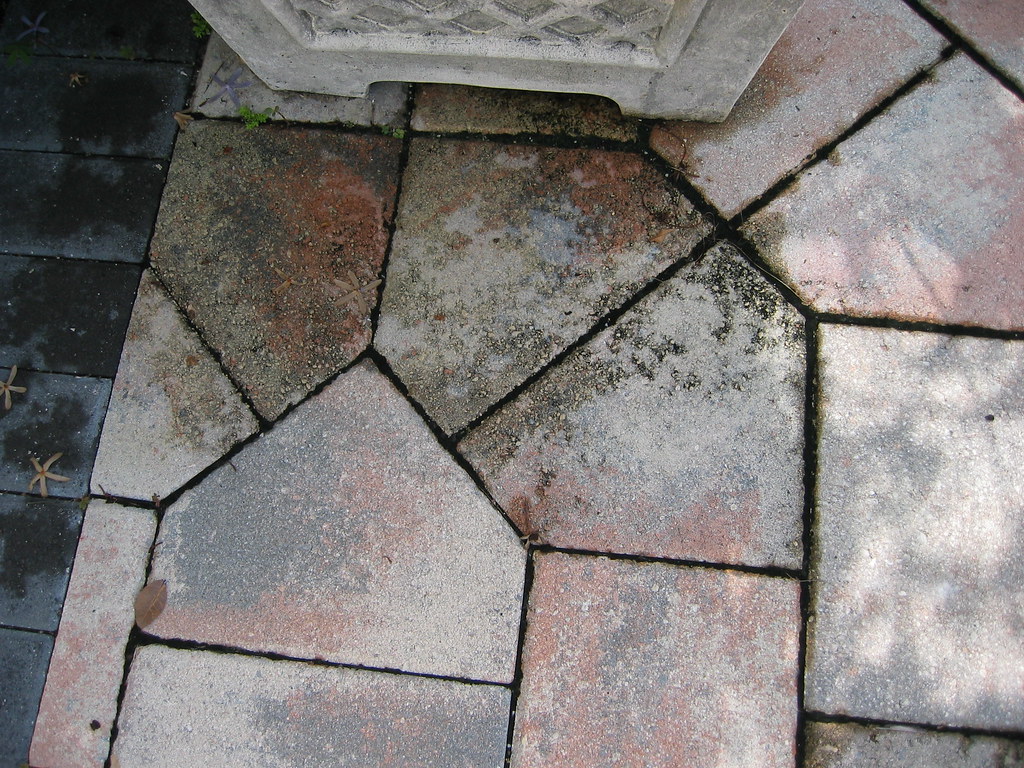
Some benefits of a cleanup routine include:
- creates a barrier against pest and ant infestations;
- kills weeds, mildew, mold, and other fungi;
- removes stains from fallen leaves and oily liquids;
- recovers the shiny, brand-new appearance of pavers;
- helps prevent future cracks, chips, and fissures;
- avoids individual replacements (and the need for an emergency budget).
Do Travertine Pavers Need to Be Sealed?
Well, the question of whether travertine pavers need to be sealed is a topic of debate among experts. Sealing can provide an added layer of protection against staining, moisture penetration, and fading. For travertine pavers used in pool applications, sealing can be particularly beneficial due to their exposure to chlorine and other pool chemicals – also enhancing the color and natural beauty of the stone.
However, it’s important to note that sealing travertine pavers can also have potential drawbacks, especially in humid areas. One of the unique characteristics of travertine is its ability to absorb water, after all – and this porosity allows travertine to naturally regulate moisture and temperature, making it a popular choice for areas around pools where splashing water is common. This means that sealing them can potentially compromise this natural water-absorption property, leading to issues such as standing water on the surface or decreased traction when wet.
Not only that but improper sealing techniques or the use of low-quality sealers can exacerbate these problems, trapping moisture within the stone and potentially causing damage over time. In some cases, sealed travertine pavers near pools may become slippery when wet, posing a safety concern for those walking in the area – endangering nearby kids and elderly people.
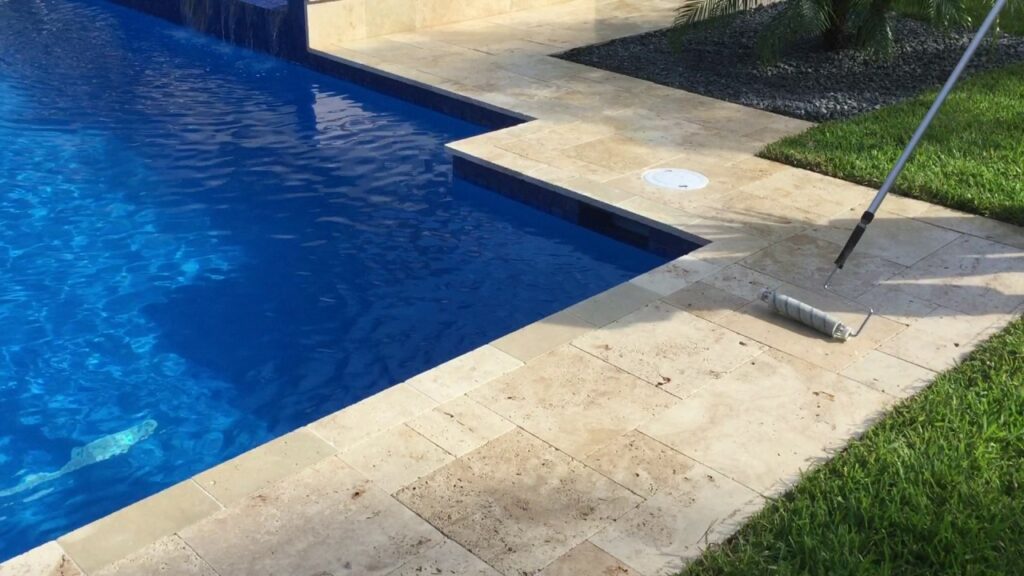
Ultimately, the decision to seal your travertine pavers should be carefully considered, taking into account both the benefits and potential drawbacks. Consulting with a professional hardscape specialist who is knowledgeable about the specific requirements of poolside applications can help you make an informed choice that aligns with your aesthetic preferences, maintenance goals, and the practical considerations of the surrounding environment.
And speaking of hiring experts…
Eagle Pavers can restore your pavers for you!
Although versatile, beautiful, and extremely durable, any kind of paver stone will suffer from the inevitable passage of time one way or another. Now, you have a general idea of the many ways you can solve these problems before they become a stronger headache – but sometimes you might not have the time for a full commitment.
That’s why, once again, consulting professional help is key. And if you live near Sarasota, Florida, our team is here to give you a hand. Don’t hesitate to contact Eagle Pavers today – we can even offer you a free quote on whatever hardscaping need you might have!
As a branch of Eagle Stones, we’ve been serving the city and its surrounding counties for years now. We provide top-quality services that include paver supply, installation, sealing, and maintenance. We’ll be waiting for you.


